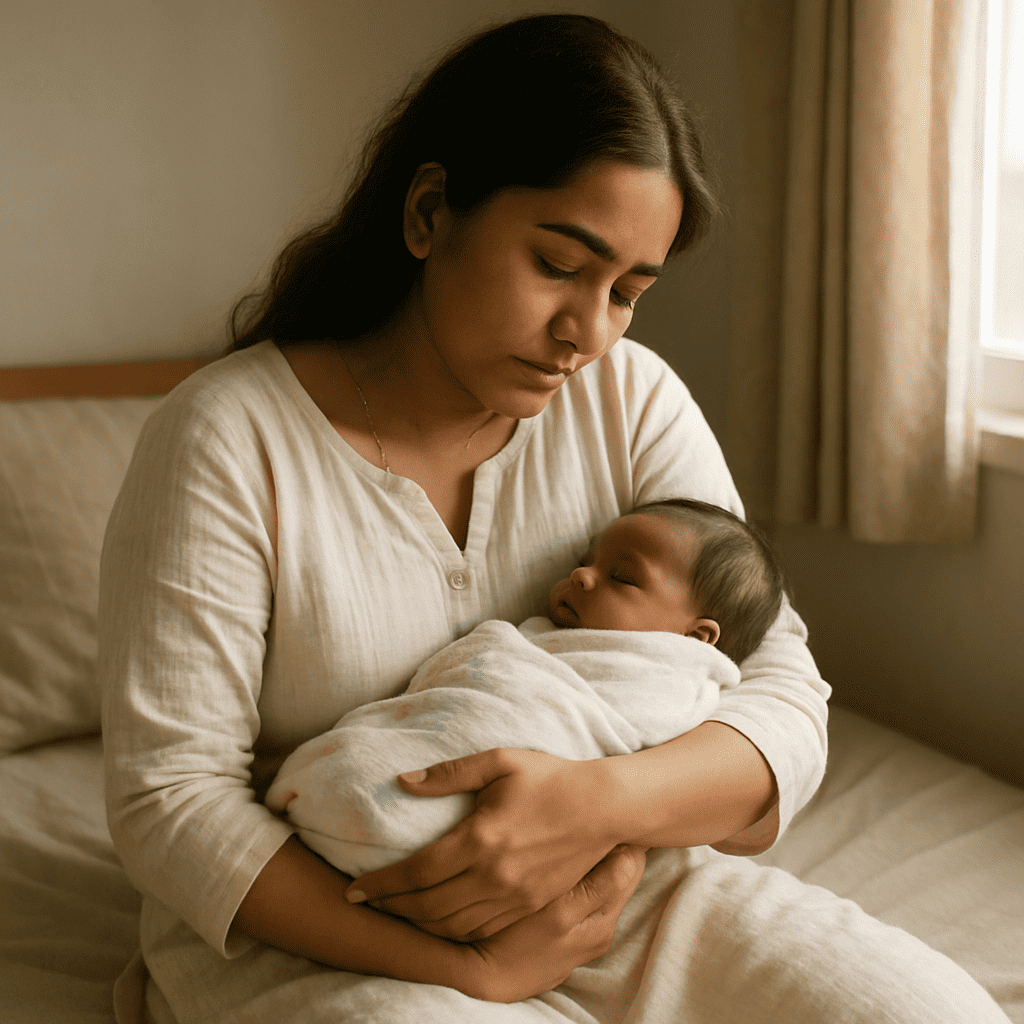
Sudden Infant Death Syndrome (SIDS) is a heartbreaking and unexplained phenomenon where an apparently healthy baby dies during sleep. While the exact cause remains unknown, research has identified several risk factors and preventive measures that can significantly reduce the likelihood of SIDS. This article aims to provide parents and caregivers with essential information on SIDS and practical steps to create a safe sleep environment for infants.
What is SIDS?
SIDS refers to the sudden and unexplained death of an infant under one year of age, typically occurring during sleep. Despite thorough investigations, including autopsies and reviews of medical histories, no definitive cause is found in these cases. SIDS is also known as “crib death” due to its occurrence during sleep in a crib or bassinet.
Risk Factors
Several factors have been linked to an increased risk of SIDS:
- Sleep Position: Placing a baby to sleep on their stomach or side increases the risk compared to the back-sleeping position.
- Sleep Environment: Soft bedding, pillows, and stuffed animals in the crib can pose suffocation hazards.
- Maternal Factors: Smoking during pregnancy, young maternal age, and inadequate prenatal care are associated with higher SIDS risk.
- Premature Birth: Babies born prematurely or with low birth weight have a higher susceptibility.
- Overheating: Excessive clothing or high room temperatures can increase the risk.
Safe Sleep Practices to Reduce SIDS Risk
Implementing the following guidelines can help create a safer sleep environment for your baby:
- Back to Sleep: Always place your baby on their back for naps and nighttime sleep.
- Firm Sleep Surface: Use a firm mattress with a fitted sheet in a safety-approved crib or bassinet.
- Keep the Crib Bare: Avoid placing soft objects, toys, or loose bedding in the crib.
- Room Sharing: Keep your baby’s sleep area in the same room where you sleep for at least the first six months.
- Pacifier Use: Offering a pacifier at nap time and bedtime may reduce the risk of SIDS.
- Temperature Control: Dress your baby appropriately for the room temperature to avoid overheating.
- Avoid Smoking: Maintain a smoke-free environment during pregnancy and after birth.
Common Myths and Misconceptions About
It’s essential to address and dispel common myths about infant sleep:
- Myth: Babies are more comfortable sleeping on their stomachs.
Fact: Back-sleeping is the safest position and does not increase the risk of choking. - Myth: Using sleep positioners can prevent SIDS.
Fact: Sleep positioners are not recommended and can pose suffocation hazards. - Myth: Co-sleeping is safe and promotes bonding.
Fact: Sharing a bed increases the risk of SIDS; room-sharing without bed-sharing is safer.
Emotional Support for Parents
Understanding and implementing safe sleep practices can be overwhelming for new parents. It’s important to seek support from healthcare providers, parenting groups, and trusted resources. Remember, taking proactive steps to ensure your baby’s safety is a significant and commendable effort.
Conclusion
While SIDS remains a tragic and unexplained occurrence, adopting recommended safe sleep practices can significantly reduce the risk. By staying informed and vigilant, parents and caregivers can create a secure sleep environment that promotes the health and well-being of their infants.
References
- AMERICAN ACADEMY OF PEDIATRICS. Task Force on Sudden Infant Death Syndrome. SIDS and Other Sleep-Related Infant Deaths: Updated 2016 Recommendations for a Safe Infant Sleeping Environment. Pediatrics, v. 138, n. 5, p. e20162938, 2016.
- CENTERS FOR DISEASE CONTROL AND PREVENTION. Providing Care for Babies to Sleep Safely. Available at: https://www.cdc.gov/sudden-infant-death/sleep-safely/index.html. Accessed on: May 6, 2025.
- NATIONAL INSTITUTE OF CHILD HEALTH AND HUMAN DEVELOPMENT. Safe Sleep Environment. Available at: https://safetosleep.nichd.nih.gov/reduce-risk/safe-sleep-environment. Accessed on: May 6, 2025.
- MAYO CLINIC. Sudden infant death syndrome (SIDS) – Symptoms and causes. Available at: https://www.mayoclinic.org/diseases-conditions/sudden-infant-death-syndrome/symptoms-causes/syc-20352800. Accessed on: May 6, 2025.
- HEALTHYCHILDREN.ORG. How to Keep Your Sleeping Baby Safe: AAP Policy Explained. Available at: https://www.healthychildren.org/English/ages-stages/baby/sleep/Pages/a-parents-guide-to-safe-sleep.aspx. Accessed on: May 6, 2025.

